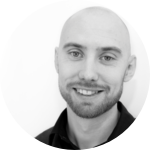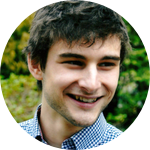About This Project
We are studying public perception about macroalgae (seaweed) aquaculture. Our goal is to value the ecosystem services provided by MA aquaculture, especially in waterways suffering from elevated eutrophication levels. We are hoping to reveal the trade off between positive environmental quality changes, and negative aesthetic changes to the otherwise 'natural' environment. We can use this knowledge to better understand how MA aquaculture should be implemented in a sustainable economy.
Ask the Scientists
Join The DiscussionWhat is the context of this research?
Our project has identified a research gap pertaining to macroalgae (MA) aquaculture projects, and we are attempting to evaluate public perception of macroalgae aquaculture through stated preference techniques. Specifically we are utilizing the contingent-valuation method to elicit Danish resident's willingness to pay (WTP) for an increase in water quality through the implementation of macroalgae aquaculture projects in Horsens Fjord which experiences elevated levels of eutrophication, and already has operating MA aquaculture projects installed. Understanding there is a trade off between cultural ecosystem services and provisioning and regulating services, we hope to identify and quantify the disutility provided by a decrease in aesthetics due to the MA aquaculture installation.
What is the significance of this project?
Current research in the field of aquaculture has been focused primarily on fish farms encompassing the many positive and negative externalities they provide. Macroalgae aquaculture provides important positive externalities (carbon sequestration, nutrient uptake, biodiversity promotion) with limited negative externalities (decrease in recreation space, decrease in surrounding aesthetic value). Therefore, if we can begin to identify public perceptions of macroalgae aquaculture we can begin introduction of projects in areas suffering from eutrophication. Seaweed offers several commodities that can be utilized for economic gain, and would simultaneously act as a natural buffer against terrestrial pollutants.
What are the goals of the project?
We will be writing our master thesis centering on the data gathered from this survey. We will submit the project in early August, and plan to complete focus groups by early April so we can distribute the survey in time that allows us to complete an econometric analysis of the results by June. So, in order to gather the requisite amount of data, we need to distribute our survey to as many respondents as possible in a short amount of time. Working with the Swedish research collaborative at seafarm.se, we hope to convert our thesis into a published scientific article contingent upon the quality of the final thesis.
Budget
For the purpose of this survey, we plan to utilize a third party panel of respondents who have chosen to volunteer their time to answer such questionnaires. In order to achieve a sample size that is representative of the target population and which would secure significant results, we would need to gather around 400 respondents. In order to do this, we will need to pay the web panel to distribute the survey to the target population. This will decrease the time and effort spent on data collection, and substantially contribute to improvement of the survey itself via focus groups, and the amount of time spent on econometric analysis of the results.
Endorsed by
 Project Timeline
Project Timeline
Mar 28, 2017
Project Launched
Apr 17, 2017
Focus Groups
Jun 13, 2017
Survey Launch
Meet the Team
Affiliates
Affiliates
Team Bio
We are a two man international team focusing on completing our master thesis at the University of Copenhagen. We are environmental and natural resource economists with a focus in ecosystem service valuation and cost benefit analysis.
William Riley Cotton
I am a 26 year old master student at the University of Copenhagen. I currently hold a BA in psychology and a BA in economics. I completed these two bachelor degrees in 2012 at The University of North Carolina in Wilmington, USA at the age of 21. I have chosen to specialize in environmental economics, specifically focusing on ecosystem service valuation and techniques of cost benefit analysis.
Since graduating from UNCW in 2012, I moved to South Korea and became an English instructor for elementary students based in Jeonju, Jeolla-buk-do. In 2014, anticipating graduate school application, I moved home and found a job as a special education teacher assistant, tutor of math/science/english, and as a part-time bar-tender. During the winter of 2014/15 I applied to several graduate schools across the world, and after several acceptance letters, chose to attend The University of Copenhagen. Understanding the environmentally conscious society fostered in Scandinavia, as well as the high reputation held by the university in research, I chose to attend this international university.
On completion of my degree, I intend to bring my knowledge of environmental economics home to the United States. I am open to working in the EU, but believe that the US is in a position that currently needs researchers to help facilitate informed policy decisions that benefit social welfare.
I have had the opportunity to travel around the world, and hope that my experience in participating in a global scientific environment, offers a unique perspective to economic and ecological research.
Pierre-Ami Maudoux
I am a 25 year old Belgian student in environmental and natural resources economics at the University of Copenhagen. Before moving to Copenhagen, I completed a bachelor in economics and management and a master in international management (CEMS) from the Université catholique de Louvain, Belgium. There, my master's thesis focused on identifying how management science could contribute to reduce corporate greenhouse gases emissions.
Studying environmental economics was a natural choice for me, having been made aware of the importance of safeguarding our natural environment early in my life, notably through my long-term involvement in Scouting organisations as a child and young adult. Like my colleague William, I have a particular interest in ecosystem service valuation. Indeed, in my view raising awareness about the various services provided by nature to society makes a very strong argument for environmental conservation and sound decision-making for public infrastructure projects.
Additional Information
Seafarm.se is the Swedish research team we are collaborating with. They have extensive experience in seaweed research and have taken an advisory role on our project.
Project Backers
- 37Backers
- 271%Funded
- $2,713Total Donations
- $73.32Average Donation


